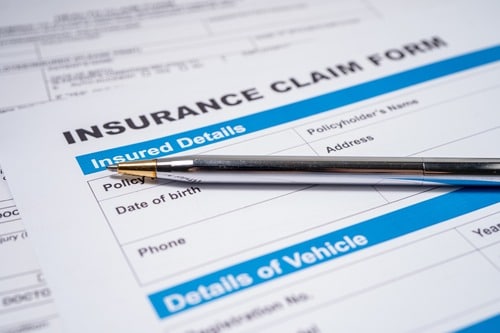At Joe Durham Jr., P.C., we are dedicated to helping individuals in Albany and throughout Georgia who have been injured in car accidents. With years of experience, we provide personalized legal representation, guiding clients through every step of their claim. Our team works tirelessly to ensure you receive the compensation you deserve, handling everything from gathering medical records to negotiating with insurance companies. If you’re facing the aftermath of an accident, we’re here to support you and fight for your rights.
After a car accident, your medical records are crucial in proving the extent of your injuries and securing fair compensation. These records not only support your claim with the insurance company but also play a key role if your case goes to court. In Georgia, proper documentation can make the difference between a successful claim and a denied settlement.
In this blog, we will explore the importance of medical records in strengthening your car accident claim, how to collect and manage them effectively, and common mistakes to avoid, while highlighting the benefits of working with an experienced Albany car accident attorney to ensure your case is handled properly.
The Importance of Medical Records in Your Car Accident Claim
Medical records play a vital role in supporting your car accident claim in Georgia. They provide essential evidence of your injuries and treatment, which can help secure fair compensation from the insurance company.
Proving the Link Between the Accident and Injuries
Medical records document the treatment you receive after a car accident. These records help establish a clear connection between the collision and your injuries. If you seek immediate medical attention, health care providers will note the details of your injuries and how they relate to the crash. This information is crucial in proving that the at-fault driver caused your injuries, strengthening your case for compensation.
Verifying the Extent of Injuries
Accurate medical records provide a clear picture of the severity of your injuries. Doctors’ notes, diagnostic tests, and treatment plans all show the impact of the crash on your health. These records help insurance companies assess the validity of your claim and determine an appropriate settlement. If your injuries require long-term care or rehabilitation, medical records can demonstrate the ongoing costs and needs.
Supporting Your Claim for Compensation
When pursuing compensation, insurance companies rely on your medical records and insurance coverage to verify the costs of treatment and the extent of your injuries. Billing records and provider notes serve as proof of your medical expenses and lost wages. Without these records, it may be difficult to prove the true value of your claim. Properly documenting your injuries and treatment ensures that you are compensated fairly for both immediate and long-term needs.
Protecting Your Claim in Court
If your claim goes to court, medical records serve as key evidence in proving your case. The judge or jury will review these documents to understand the nature of your injuries and the treatment you received. This helps establish the damages you should receive for your injuries, pain, and suffering. Identifying the at-fault party is crucial in this process, as it directly impacts the compensation you can recover. In Georgia, the strength of your medical records can significantly impact the outcome of your personal injury lawsuit.
How to Collect Medical Records
To strengthen your claim, you need to collect and organize all relevant medical records. After seeking treatment, request copies of your records from healthcare providers. Ensure that these documents include details of your injuries, treatment, prescriptions, and any related bills. Additionally, obtain accurate contact information, including phone numbers, of your healthcare providers to facilitate the process. Submit these records to your insurance company, attorney, and any other involved parties to support your case.
Key Medical Records to Collect After a Car Accident
Collecting the right medical records after a car accident is essential for strengthening your claim and ensuring you receive fair compensation. The following records will help verify the injuries you sustained and the treatment you received. Additionally, if the accident involved an other driver, especially an uninsured one, these records become crucial in navigating the complexities of your claim.
Emergency Room Records
If you go to the emergency room after the accident, make sure to collect the records from your visit. These documents will include your initial diagnosis, any treatments administered, and the doctor’s notes on the severity of your injuries. Emergency room records serve as important evidence to show that you sought immediate care following the accident.
Follow-Up Treatment Records
After the initial treatment, it is important to keep records from any follow-up visits to healthcare providers. These records will show how your injuries progressed, any additional treatments, and whether there were complications. Drivers should be aware of their responsibilities and protections under different situations, as these can impact their claims and coverage. Doctors’ notes, physical therapy reports, and specialist records can help demonstrate the ongoing effects of the accident and support the need for long-term care.
Diagnostic and Imaging Results
Diagnostic tests, such as X-rays, MRIs, or CT scans, are critical records to collect. These tests provide clear evidence of the extent of your injuries, such as fractures, soft tissue damage, or internal injuries. Insurance companies and attorneys use these records to verify the severity of your injuries and to determine the compensation you should receive.
Prescription and Medication Records
Prescription records are essential to show the medications you have been prescribed for pain management or other injury-related conditions. These records support your claim by proving the ongoing treatment you require and the costs associated with it. Prescription records also help demonstrate the impact the accident has had on your daily life and well-being.
Billing and Payment Records
Billing records from healthcare providers and hospitals are crucial for proving the financial cost of your treatment. These documents show the total medical expenses you’ve incurred due to the accident, including doctor visits, procedures, and any follow-up care. In addition to medical expenses, it’s important to consider property damage as part of the overall financial impact of the accident. Having these records organized and available ensures that you can claim all necessary expenses for your injuries.
How to Obtain and Manage Medical Records in Georgia
Obtaining and managing your medical records in Georgia is an important step in building a strong car accident claim. Follow these steps to ensure you gather and share the right documents.
Requesting Medical Records from Healthcare Providers
To obtain your medical records, contact the healthcare providers where you received treatment. You will need to fill out a request form that includes your personal details, the accident date, and your consent for the release of your records. It is also important to obtain accurate contact information, including phone numbers, of the healthcare providers to facilitate the process. Some providers may require a specific authorization form, so be sure to ask for the correct documents. The records should be delivered to you promptly, either by mail, fax, or electronically.
Submitting Medical Records to the Insurance Company
Once you have collected your medical records, submit them to your insurance company to support your claim and determine the appropriate insurance coverage. Ensure that you send the records with the necessary forms and claim details, such as your policy number and the at-fault driver’s information. Be sure to send copies of the records, not originals, and keep a copy of everything you send. You may submit the records via mail, fax, or email depending on the insurance company’s requirements.
Organizing and Managing Your Records
Keep your medical records organized to ensure easy access when needed. Use a binder or digital folder to store your records, bills, and treatment documents in chronological order. Make sure to include notes on any follow-up appointments and treatment plans. When transactions occur in person, it is essential to have proper identification to access your records. Having organized records will help you quickly share the necessary information with your attorney, insurance company, or healthcare providers when needed.
HIPAA and Protecting Your Privacy
When requesting and sharing your medical records, it’s essential to understand HIPAA (Health Insurance Portability and Accountability Act) regulations. HIPAA protects your privacy and ensures your medical information is not disclosed without your consent. The Privacy Rule under HIPAA grants individuals the right to access their medical and billing records, specifically from health plans and healthcare providers subject to these regulations. Always confirm that your healthcare providers and insurance companies are compliant with HIPAA standards when handling your records.
Common Mistakes to Avoid When Handling Medical Records
Handling medical records properly is crucial for a successful car accident claim. Avoid these common mistakes to ensure your records support your case effectively.
Failing to Seek Immediate Medical Treatment
One of the biggest mistakes is not seeking immediate medical care after a car accident. Even if you feel fine right after the crash, some injuries may not show symptoms right away. Drivers have responsibilities and protections under different situations, and seeking prompt medical attention is crucial. Insurance companies or courts may question the legitimacy of your claim if there is a delay in your medical treatment. Always get checked by a healthcare provider as soon as possible to document your injuries.
Incomplete or Missing Medical Records
Another common mistake is not having a complete set of medical records. Health care providers play a crucial role in documenting the treatment you receive after a car accident. Missing records can create gaps in your treatment history, which could weaken your claim. Ensure you collect all documents related to your injuries, including doctor’s notes, diagnostic results, prescriptions, and billing records. If any records are missing, request them promptly from the healthcare provider to fill in the gaps.
Not Sharing Records with Your Attorney
Failing to share your medical records with your attorney is a mistake that can hurt your case. Your attorney needs all your medical records to evaluate your claim and build a strong case. Make sure to provide your lawyer with copies of all relevant documents to ensure they can effectively negotiate with the insurance company or represent you in court.
Sharing Records Without Authorization
It’s important to protect your privacy when handling medical records. Sharing your medical information without proper authorization could violate HIPAA regulations. Always ensure that you sign a consent form for your healthcare provider or insurance company to share your records. Without proper authorization, your records may not be accepted by the insurance company or legal parties involved in your case.
Failing to Track Submissions and Correspondence
Neglecting to keep a record of when and how you submit your medical records can lead to issues later. Always track the dates and methods of submission, whether through fax, mail, or email. Including your telephone number on the health or medical record release form ensures that the provider can reach out and send the necessary records to the correct address. Keep confirmation receipts or any proof of delivery to ensure your records were received by the right parties. This can prevent disputes over whether your records were sent or received on time.
Contact an Experienced Albany Car Accident Attorney Today!
If you’ve been involved in a car accident, it’s crucial to have the right support to ensure you receive the compensation you deserve. Identifying the at-fault party is essential in proving your case and establishing damages. Our team at Joe Durham Jr., P.C. is here to help you navigate the claims process and handle all aspects of your case.
Contact us at 229-210-6226 for a free claim review today!







